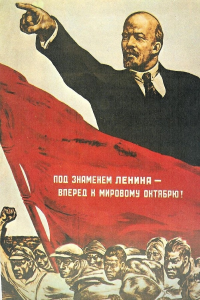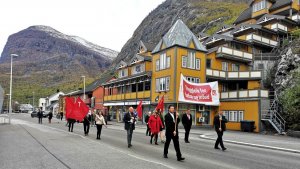G
Gjestemedlem
Gjest
Back at ya..
https://besserwiz.art/2020/04/16/the-corona-reset-part-ii-how-will-it-affect-society/
The pandemic will be gruesome and persistent, but the socio-economic fallout will not only outlast, but also outmatch it. [2][3][4] An exact prediction of what is going to happen is next to impossible. What can be done, though, is to think not about what is certain, but what is possible and how probable it is. Therefore, we will structure the potential consequences in four consecutive stages, beginning with the most likely but least severe. The short term social and psychological implications will not be elaborated here, for we have done so in another article already.
Stage I: health care overdrive
The health care system will almost definitely be overburdened in most countries, even in the most developed ones. Millions – possibly multi-digit – will die from COVID-19 directly and indirectly from other conditions that cannot be treated because of the lack of available hospital beds, equipment, pharmaceuticals and funding. [1][2][13][28]
Stage II: economic revolution
The short to medium term future of the global economy is looking dire, that much we have established in Part I already. Some large critical corporations might get bailed out, but the middle class will be decimated. Disrupted supply chains and failed businesses will leave us with smaller supply and variety of products and services. The worldwide lack of jobs will disrupt incomes globally while prices will rise drastically. [3][23] Like back in the Great Depression, overall living standard will decline, pushing many into poverty. [6][8] With countries and funds going bankrupt and the investments they rely on tanking, even pensions are at stake. [17][18] Governments and businesses will have to act and cooperate decisively and creatively to dodge this bullet.
In the long run, we might see the rise, growth and demise of mighty corporations. This will depend on how important and fit they are for the future. Moreover, the lack of competition will serve as a fertile breeding ground for new ideas. We might experience a boom of individual entrepreneurship as high unemployment forces people to get creative leveraging modern tools like the internet. The situation might even serve as a catalyst for modern concepts ranging from Home Office [4] to Universal Basic Income [12], the decentralization of production as well as new monetary and economic systems. [9][23][24][25] For example, cryptocurrencies will gain wider adoption [23][29]. Even the US senate is currently discussing a digital Crypto-Dollar that might require neither any private banks nor cash [10][11] while China is rolling out their own counterpart already [30]. [3]
Stage III: basic service collapse
Starvation is a consequence of the pandemic in less fortunate places like India already. [5] Depending on how fast we can get the spread of the virus under control, more or less businesses will fail and supply chains will be disrupted. Currently, basic services like food or pharmaceutical provision are affected moderately [4][7], but it might get worse or expand to other sectors. [3] If enough people fall sick at once or the supply chains are disrupted for long enough, even energy or the internet might be jeopardized (an highly unlikely worst-case scenario that could send us back into the Dark Ages). While countries will be affected differently, in a globalized society any damage done to anyone is damage done to everyone.
Stage IV: geopolitical upheaval
The polarization of regions like the EU will strengthen under the financial and humanitarian stress imposed by the crisis, threatening their unity [26]. Unable to carry the burden alone, nations like Italy might as well see an impact on their sovereignty [4]. At the same time, organized crime is trying to take advantage [27]. Others like the USA are hit hard as well [19] and could lose international power. Furthermore, mass-demonstrations and looting are already happening and bound to intensify [14][15][27], just as international tensions. By escalating into revolution and war they could put public order in jeopardy [4]. The potential loss of public trust in governments and FIAT money could add to this threat. The same goes for the limitation of rights and freedoms that are both necessary and easier to implement because of the pandemic and the financial crisis [25][28].
Regions already battered by war, poverty and drought will be ravaged by the virus with particular force. Mass exodus from there would destabilize the world even more and fuel nationalism and fascism (the Second World War happened in the wake of the Great Depression). Those effects would vary from country to country as well, but they are likely to affect all of us one way or the other. [3][4] Overall, significant geopolitical upheaval is to be expected.
With crisis comes opportunity
Societal Collapse can happen pretty abruptly, faster than most see it coming – especially after a Black Swan Event like a pandemic. [22] However, the Chinese word for Crisis (“Weiji”) is a composition of “danger” and “opportunity”. [16] We should keep in mind that this are not all certainties, but only possibilities. Nowadays, the World is smaller and more interconnected than ever. The shared affliction might as well bring us together and usher in a new, global feeling of community and extensive cooperation. [20][21]
In any case, what we as a global community do next will decide the fate of humanity. We MUST stay calm, show solidarity and be reasonable (shout-out to thepostboxproject, a real role model!). Next to all of the suffering this is an unprecedented chance for change, too.
This is why Part III will explain how this crisis might even save mankind.
https://besserwiz.art/2020/04/16/the-corona-reset-part-ii-how-will-it-affect-society/
The pandemic will be gruesome and persistent, but the socio-economic fallout will not only outlast, but also outmatch it. [2][3][4] An exact prediction of what is going to happen is next to impossible. What can be done, though, is to think not about what is certain, but what is possible and how probable it is. Therefore, we will structure the potential consequences in four consecutive stages, beginning with the most likely but least severe. The short term social and psychological implications will not be elaborated here, for we have done so in another article already.
Stage I: health care overdrive
The health care system will almost definitely be overburdened in most countries, even in the most developed ones. Millions – possibly multi-digit – will die from COVID-19 directly and indirectly from other conditions that cannot be treated because of the lack of available hospital beds, equipment, pharmaceuticals and funding. [1][2][13][28]
Stage II: economic revolution
The short to medium term future of the global economy is looking dire, that much we have established in Part I already. Some large critical corporations might get bailed out, but the middle class will be decimated. Disrupted supply chains and failed businesses will leave us with smaller supply and variety of products and services. The worldwide lack of jobs will disrupt incomes globally while prices will rise drastically. [3][23] Like back in the Great Depression, overall living standard will decline, pushing many into poverty. [6][8] With countries and funds going bankrupt and the investments they rely on tanking, even pensions are at stake. [17][18] Governments and businesses will have to act and cooperate decisively and creatively to dodge this bullet.
In the long run, we might see the rise, growth and demise of mighty corporations. This will depend on how important and fit they are for the future. Moreover, the lack of competition will serve as a fertile breeding ground for new ideas. We might experience a boom of individual entrepreneurship as high unemployment forces people to get creative leveraging modern tools like the internet. The situation might even serve as a catalyst for modern concepts ranging from Home Office [4] to Universal Basic Income [12], the decentralization of production as well as new monetary and economic systems. [9][23][24][25] For example, cryptocurrencies will gain wider adoption [23][29]. Even the US senate is currently discussing a digital Crypto-Dollar that might require neither any private banks nor cash [10][11] while China is rolling out their own counterpart already [30]. [3]
Stage III: basic service collapse
Starvation is a consequence of the pandemic in less fortunate places like India already. [5] Depending on how fast we can get the spread of the virus under control, more or less businesses will fail and supply chains will be disrupted. Currently, basic services like food or pharmaceutical provision are affected moderately [4][7], but it might get worse or expand to other sectors. [3] If enough people fall sick at once or the supply chains are disrupted for long enough, even energy or the internet might be jeopardized (an highly unlikely worst-case scenario that could send us back into the Dark Ages). While countries will be affected differently, in a globalized society any damage done to anyone is damage done to everyone.
Stage IV: geopolitical upheaval
The polarization of regions like the EU will strengthen under the financial and humanitarian stress imposed by the crisis, threatening their unity [26]. Unable to carry the burden alone, nations like Italy might as well see an impact on their sovereignty [4]. At the same time, organized crime is trying to take advantage [27]. Others like the USA are hit hard as well [19] and could lose international power. Furthermore, mass-demonstrations and looting are already happening and bound to intensify [14][15][27], just as international tensions. By escalating into revolution and war they could put public order in jeopardy [4]. The potential loss of public trust in governments and FIAT money could add to this threat. The same goes for the limitation of rights and freedoms that are both necessary and easier to implement because of the pandemic and the financial crisis [25][28].
Regions already battered by war, poverty and drought will be ravaged by the virus with particular force. Mass exodus from there would destabilize the world even more and fuel nationalism and fascism (the Second World War happened in the wake of the Great Depression). Those effects would vary from country to country as well, but they are likely to affect all of us one way or the other. [3][4] Overall, significant geopolitical upheaval is to be expected.
With crisis comes opportunity
Societal Collapse can happen pretty abruptly, faster than most see it coming – especially after a Black Swan Event like a pandemic. [22] However, the Chinese word for Crisis (“Weiji”) is a composition of “danger” and “opportunity”. [16] We should keep in mind that this are not all certainties, but only possibilities. Nowadays, the World is smaller and more interconnected than ever. The shared affliction might as well bring us together and usher in a new, global feeling of community and extensive cooperation. [20][21]
In any case, what we as a global community do next will decide the fate of humanity. We MUST stay calm, show solidarity and be reasonable (shout-out to thepostboxproject, a real role model!). Next to all of the suffering this is an unprecedented chance for change, too.
This is why Part III will explain how this crisis might even save mankind.


















